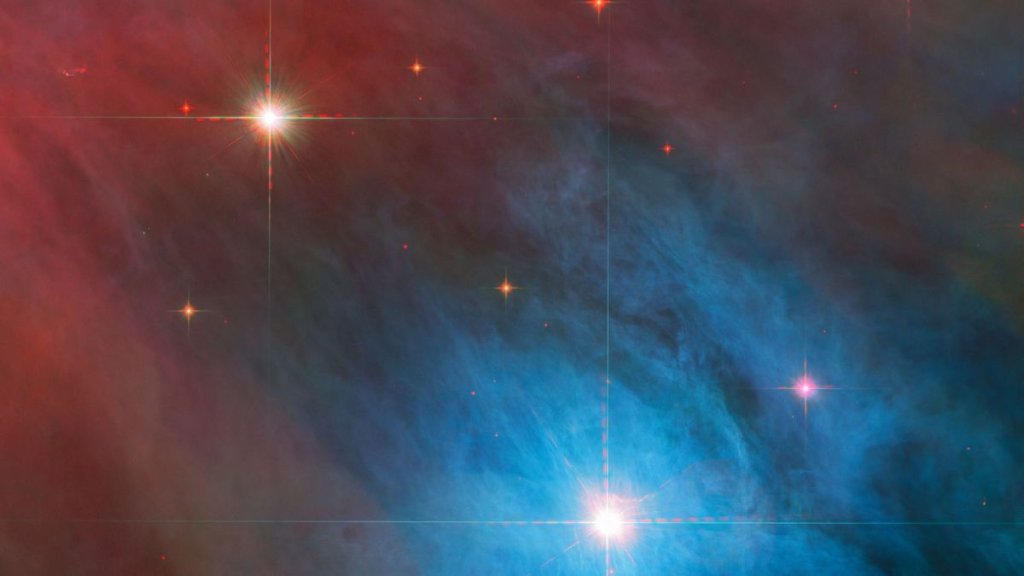The Hubble Space Telescope captured a dazzling new view of two tempestuous young stars in the nearby Orion Nebula.
A bright variable star known as V 372 Orionis is the larger central star surrounded by hazy blue clouds in the recent Hubble Space Telescope photo, while its companion star can be seen to the upper left. These stars reside in the Orion Nebula — a region of stellar formation located around 1,450 light-years away from Earth.
“V 372 Orionis is a particular type of variable star known as an Orion Variable. These young stars experience some tempestuous moods and growing pains, which are visible to astronomers as irregular variations in luminosity,” European Space Agency (ESA) officials said in a statement (opens in new tab). “Orion Variables are often associated with diffuse nebulae, and V 372 Orionis is no exception; the patchy gas and dust of the Orion Nebula pervade this scene.”
Related: Hubble Space Telescope spies young stars amid glowing interstellar gas
This new Hubble image combines data from two of the space telescope’s instruments: the Advanced Camera for Surveys and the Wide Field Camera 3. Researchers used data taken at both infrared and visible wavelengths to create this overlay image, which reveals details of the nebula.
The bright stars are surrounded by diffraction spikes, which occur when an intense source of light interacts with the four vanes inside Hubble that support the telescope’s secondary mirror.
The four spikes seen around the brightest stars are specific to Hubble’s internal structure. By comparison, the James Webb Space Telescope creates six-pointed diffraction spikes due to its hexagonal mirror segments and 3-legged support structure for the secondary mirror, according to the statement from ESA.
In the new Hubble image, which ESA released online on Jan. 23, the two prominent stars are surrounded by smaller red stars.The background of the image is blanketed by bright blue and wispy red clouds of gas, which provide the elements for future star formation.
Follow Samantha Mathewson @Sam_Ashley13. Follow us on Twitter @Spacedotcom and on Facebook.

